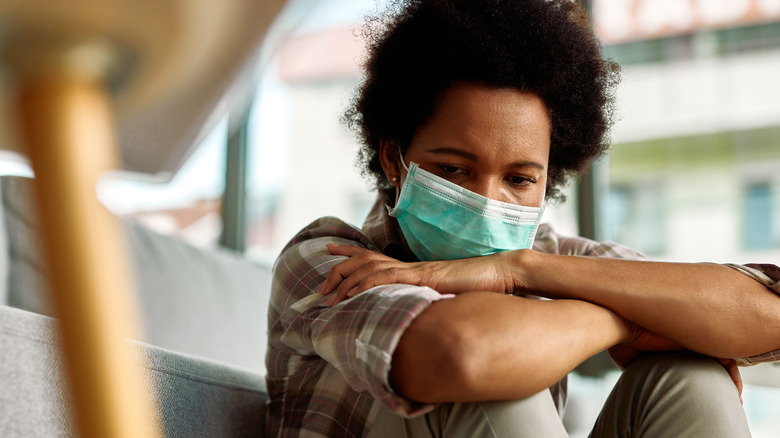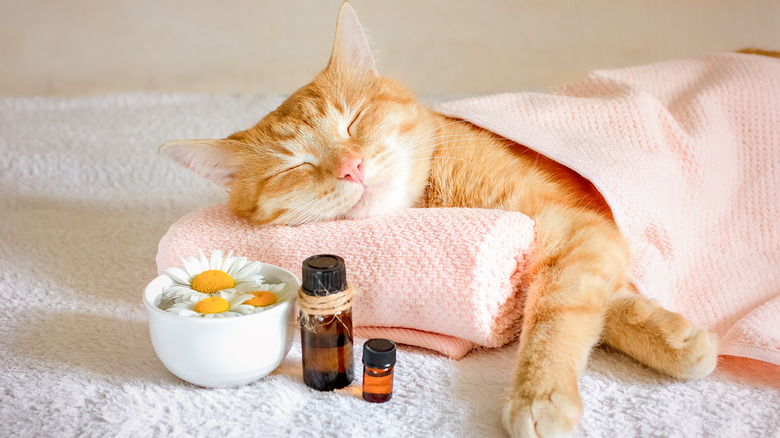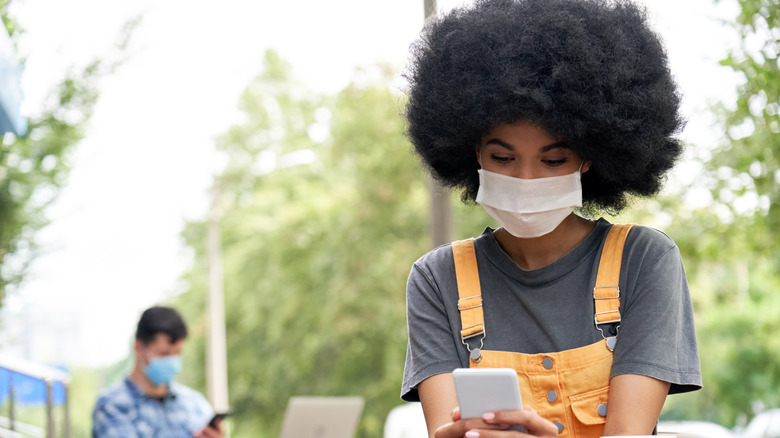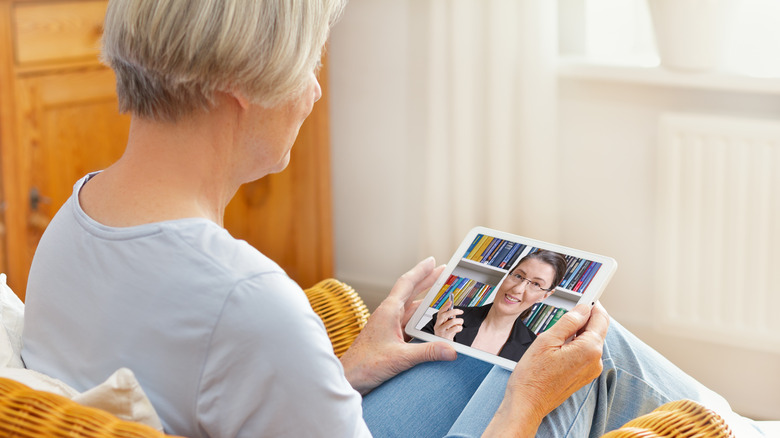How To Cope With Anxiety About Re-Entering Society Post COVID-19
For the past year or so, most of us have been spending more time than ever if not exactly homebound, then confined to a small "bubble" in which most of our interactions are virtual and more than a handful of people really does constitute a crowd. Slowly, though, things are starting to change, and as the various COVID-19 vaccines roll out, more businesses are re-opening, children are returning to school, and employers are expecting workers back in their cubicles.
While many people greet the relaxed restrictions with joy, excited to catch up with others face-to-face rather than via video chat, not everyone is eager to jump back into the fray. If the thought of going back to living your life 2019-style is causing you distress to the point where you find yourself making excuses to cancel plans you have made, or perhaps even experiencing heart palpitations or shortness of breath when you think of going outside your door, Laura Rhodes-Levin, LMFT and founder of The Missing Peace Center for Anxiety, tells The List, "Don't worry. This is absolutely natural."
Whether you're still concerned about the possibility of infection or you've just forgotten how to "social" after so much time in your own company, Rhodes-Levin says your body is going to produce a certain amount of adrenaline that causes this fight-or-flight response whenever you contemplate the renewed pressure of having to resume life outside your safe cocoon.
Cope with your anxiety at home
Before you get up the courage to face life "out there," you first need to deal with all the stress you are feeling from just anticipating this dreaded event. Laura Rhodes-Levin says the first thing to do is "just take a deep breath, collect yourself and keep going at the most relaxed pace you can manage." Stop and think about your fear and just how realistic it is. Rhodes-Levin calls fear "the negative voice in your head painting scary scenarios," and says she always tells her patients that "anxiety is a liar that predicts doom."
Instead of focusing on some incredibly unlikely apocalyptic scenario, she advises turning your mind to more pleasant things, Listen to music, or maybe try some aromatherapy. Do whatever it takes to gather yourself together and gain the strength you need to get out there and mix with other people again. As Rhodes-Levin says, "We all need to have social connection, it is so important and so healthy." Even if you're an introvert's introvert and inclined to disagree, there's still the fact that you've got to make a living, after all. It's all very well to be a billionaire recluse like Howard Hughes, but if you're a few billion short of this goal, well, Rhodes-Levin reminds us that "pushing yourself to have these experiences [of rejoining society] in spite of the discomfort, is much healthier than staying at home and isolating."
Decide what you're comfortable doing outside the home
While you might feel more comfortable if you were able to control every aspect of your re-entry into the post-pandemic world, Laura Rhodes-Levin says, "There are very few things that are in our control. Control is an illusion." This rings doubly true for those whose re-emergence comes at their boss's behest, since if they want you back behind your desk and you want to retain your job, well, that's what you'll have to do. If you're still permitted to work from home for the time being, however, and you want to try dipping your toe in the social waters, Rhodes-Levin suggests you "choose people with whom you have emotional safety" and those "with [whom] you feel completely comfortable in being yourself." Also, opting to interact with only masked and vaccinated people remains in everyone's best interest.
If you do not have anyone like this in your life, she says "you'll need to be your own best friend and be understanding of how you're feeling in these first without judging yourself." You and your self-BFF, though, should still get out of the house, perhaps with a short trip to the store or out for a haircut or maybe an outdoor café. Even if you feel a bit uncomfortable, you're taking baby steps in the right direction. After all, as Rhodes-Levin tells us, "You'll probably feel better for having done the outing than you would have felt staying at home. "
Seek support where you can
If you are afraid people are going to start pressuring you about getting out there again and rejoining the human race (blah blah blah), Laura Rhodes-Levin advises, "Just be honest." She says not everyone's going to understand, since "everyone has completely different ideas of what is comfortable and safe," so she counsels seeking out and spending time with those who do share your feelings (assuming any of them will want to leave the house, that is).
If you don't have the support of friends and family — or even if you do — Rhodes-Levin advocates seeking professional help for any anxiety or depression you may be feeling. As she tells The List, "I'm a big believer in getting help on the earlier side of issues than later," and urges you to "release any shame you might have around getting some pointers to help get you going." It's far better to be proactive and get help before things get too bad. Plus, you don't even need to go out of the house to get counseling! Many mental health providers were offering telehealth services even before the COVID-19 outbreak, and there are a number of online therapy apps that may allow you to get help without having to wait for an in-office appointment.



